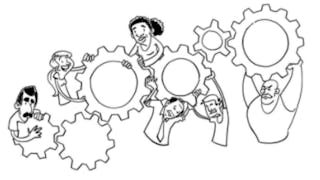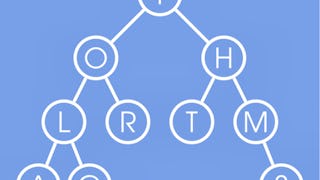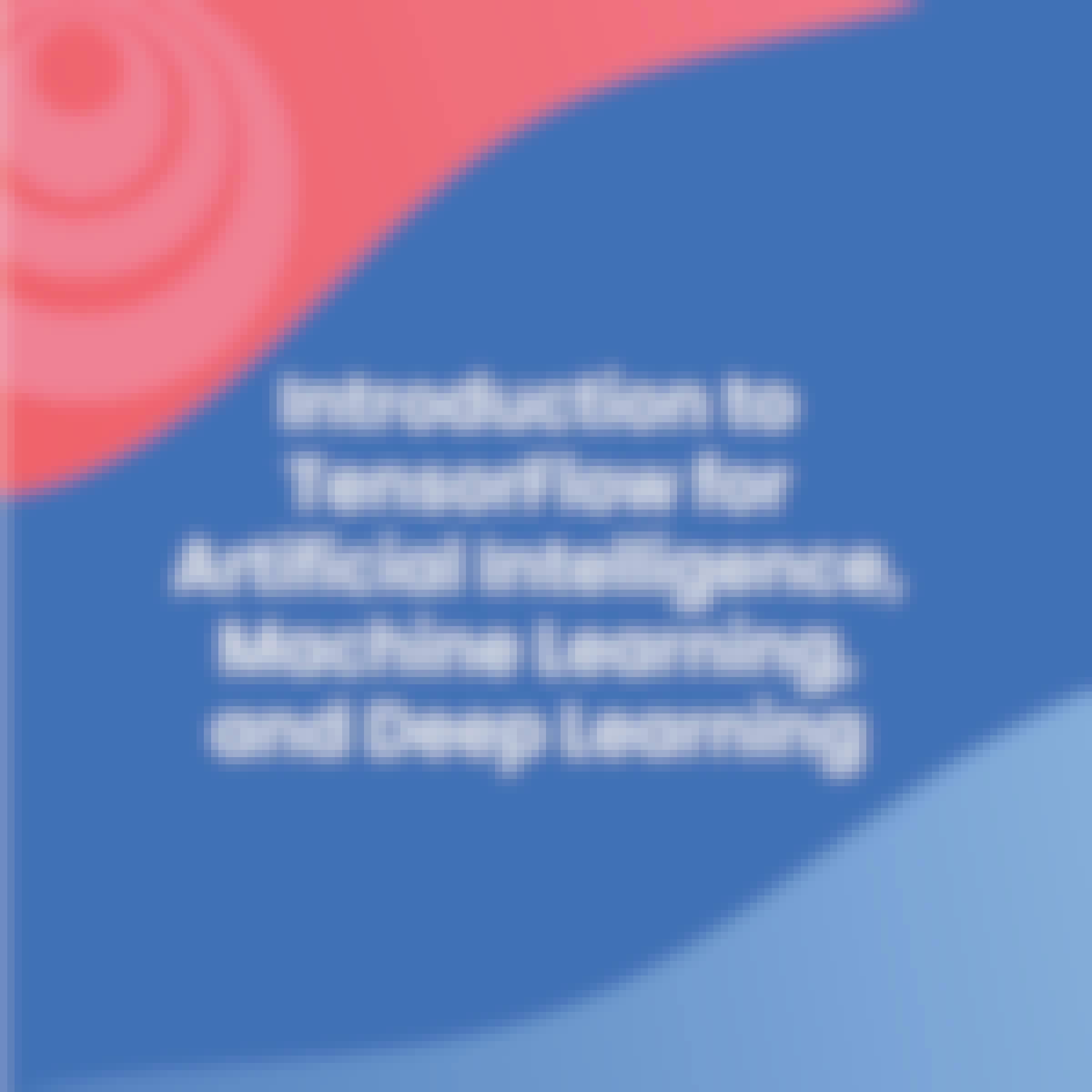- Browse
- Human Computer Interaction
Results for "human computer interaction"
 Status: Free TrialFree Trial
Status: Free TrialFree TrialSkills you'll gain: Network Security, Hardening, Network Protocols, Cloud Security, Network Architecture, Intrusion Detection and Prevention, TCP/IP, Vulnerability Assessments, Computer Networking, Cybersecurity, Network Infrastructure, Firewall, Cloud Computing, Virtual Private Networks (VPN), Encryption
4.8·Rating, 4.8 out of 5 stars7.1K reviewsBeginner · Course · 1 - 4 Weeks
 Status: Free TrialFree Trial
Status: Free TrialFree TrialSkills you'll gain: Dashboard, SQL, Descriptive Statistics, Jupyter, Statistical Analysis, Data Analysis, Probability Distribution, Pandas (Python Package), Data Presentation, Statistics, Data Visualization, Statistical Methods, Relational Databases, Stored Procedure, Data Import/Export, Data Science, Programming Principles, Computer Programming Tools, Web Scraping, Python Programming
Build toward a degree
4.6·Rating, 4.6 out of 5 stars75K reviewsBeginner · Specialization · 3 - 6 Months
 Status: Free TrialFree TrialU
Status: Free TrialFree TrialUUniversity of Michigan
Skills you'll gain: Unified Modeling Language, JSON, Object Oriented Programming (OOP), File I/O, Software Design, Debugging, Object Oriented Design, Data Processing, Web Scraping, Unit Testing, Programming Principles, Program Development, Python Programming, Data Import/Export, Restful API, Image Analysis, Data Manipulation, Jupyter, Computer Programming, Data Structures
4.8·Rating, 4.8 out of 5 stars23K reviewsBeginner · Specialization · 3 - 6 Months
 Status: Free TrialFree Trial
Status: Free TrialFree TrialSkills you'll gain: Data Structures, Algorithms, Software Visualization, Pseudocode, Programming Principles, Computational Thinking, Theoretical Computer Science, Computer Science, Technical Communication, Communication
4.6·Rating, 4.6 out of 5 stars767 reviewsIntermediate · Course · 1 - 4 Weeks
 Status: Free TrialFree TrialU
Status: Free TrialFree TrialUUniversity of Colorado Boulder
Skills you'll gain: Teamwork, Conflict Management, Collaboration, Mediation, Interpersonal Communications, Social Skills, Decision Making, Innovation, Cultural Diversity, Communication, Digital Communications, Virtual Environment
4.7·Rating, 4.7 out of 5 stars3.6K reviewsBeginner · Course · 1 - 4 Weeks
 Status: Free TrialFree TrialU
Status: Free TrialFree TrialUUniversity of California San Diego
Skills you'll gain: Algorithms, Program Development, Debugging, Development Testing, Software Testing, Computational Thinking, Test Case, Computer Programming, Programming Principles, Data Structures, Theoretical Computer Science, Design Strategies
4.6·Rating, 4.6 out of 5 stars13K reviewsIntermediate · Course · 1 - 3 Months
 Status: Free TrialFree TrialD
Status: Free TrialFree TrialDDeepLearning.AI
Skills you'll gain: Tensorflow, Computer Vision, Model Evaluation, Image Analysis, Convolutional Neural Networks, Keras (Neural Network Library), Deep Learning, Artificial Neural Networks, Artificial Intelligence, Data Preprocessing, Machine Learning
4.8·Rating, 4.8 out of 5 stars20K reviewsIntermediate · Course · 1 - 4 Weeks
 Status: Free TrialFree Trial
Status: Free TrialFree TrialSkills you'll gain: SQL, Jupyter, Data Literacy, Data Mining, Data Modeling, Relational Databases, Stored Procedure, Model Deployment, Databases, Data Science, Big Data, Computer Programming Tools, Query Languages, GitHub, Data Preprocessing, Data Cleansing, R (Software), Cloud Computing, Data Analysis, Python Programming
Build toward a degree
4.6·Rating, 4.6 out of 5 stars101K reviewsBeginner · Specialization · 3 - 6 Months
 Status: Free TrialFree TrialR
Status: Free TrialFree TrialRRice University
Skills you'll gain: Computational Thinking, Event-Driven Programming, Algorithms, Combinatorics, Graph Theory, Programming Principles, Application Development, Object Oriented Programming (OOP), Data Structures, Probability, Bioinformatics, Interactive Design, Program Development, Big Data, Python Programming, Data Analysis, User Interface (UI), Machine Learning Algorithms, Theoretical Computer Science, Computer Programming
4.8·Rating, 4.8 out of 5 stars4.1K reviewsBeginner · Specialization · 3 - 6 Months
 Status: Free TrialFree TrialU
Status: Free TrialFree TrialUUniversity of California, Davis
Skills you'll gain: Social Network Analysis, Network Analysis, Data Wrangling, Natural Language Processing, Web Scraping, Social Sciences, Data Ethics, Databases, Artificial Intelligence, Research, Simulations, Data Processing, Big Data, Systems Thinking, Social Studies, Trend Analysis, Data Science, AI Enablement, Research Methodologies, Agentic systems
4.6·Rating, 4.6 out of 5 stars1.2K reviewsBeginner · Specialization · 3 - 6 Months
 Status: Free TrialFree TrialU
Status: Free TrialFree TrialUUniversity of Pennsylvania
Skills you'll gain: People Analytics, Descriptive Analytics, Financial Statement Analysis, Business Analytics, Data-Driven Decision-Making, Customer Analysis, Human Capital, Human Resource Strategy, Operations Research, Financial Analysis, Marketing Analytics, Analytics, Operational Efficiency, Predictive Analytics, Customer Insights, Financial Data, Operational Analysis, Peer Review, Human Resources, Financial Accounting
4.6·Rating, 4.6 out of 5 stars18K reviewsBeginner · Specialization · 3 - 6 Months
 Status: Free TrialFree TrialR
Status: Free TrialFree TrialRRice University
Skills you'll gain: Human Musculoskeletal System, Anatomy, Endocrinology, Orthopedics, Kinesiology, Physiology, Neurology, Medical Terminology, Cell Biology, Biology, Chemistry, Clinical Practices, Sports Medicine, Physical Therapy, Molecular, Cellular, and Microbiology, Life Sciences, Lifelong Learning
4.7·Rating, 4.7 out of 5 stars164 reviewsIntermediate · Specialization · 3 - 6 Months
In summary, here are 10 of our most popular human computer interaction courses
- Connect and Protect: Networks and Network Security: Google
- Data Science Fundamentals with Python and SQL: IBM
- Python 3 Programming: University of Michigan
- Coding Interview Preparation: Meta
- Teamwork Skills: Communicating Effectively in Groups: University of Colorado Boulder
- Algorithmic Toolbox: University of California San Diego
- Introduction to TensorFlow for Artificial Intelligence, Machine Learning, and Deep Learning: DeepLearning.AI
- Introduction to Data Science: IBM
- Fundamentals of Computing: Rice University
- Computational Social Science: University of California, Davis










